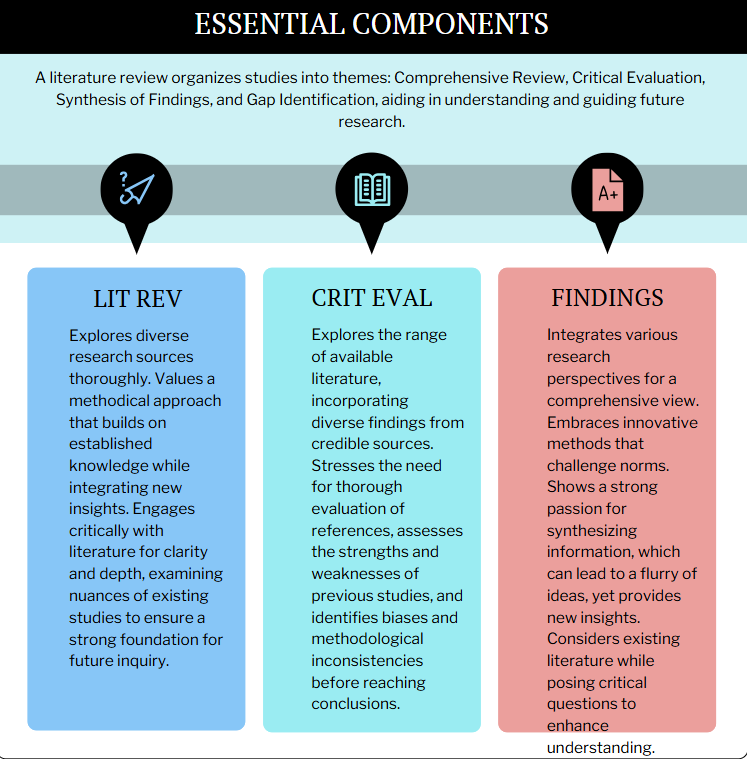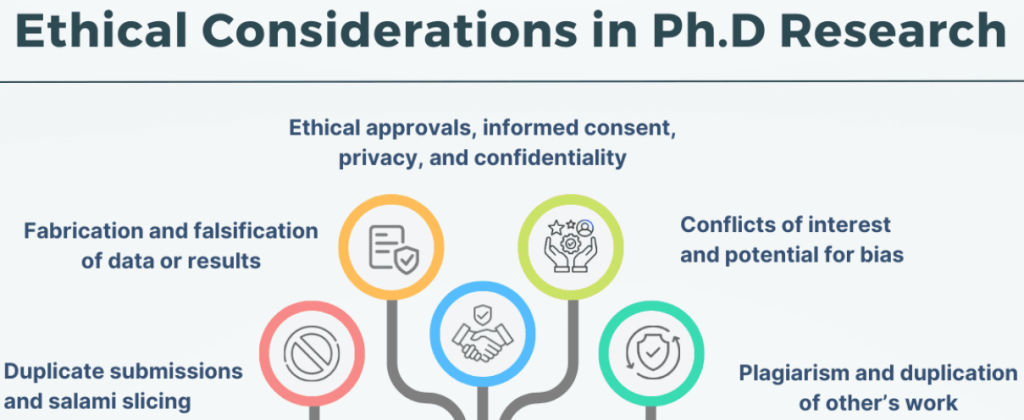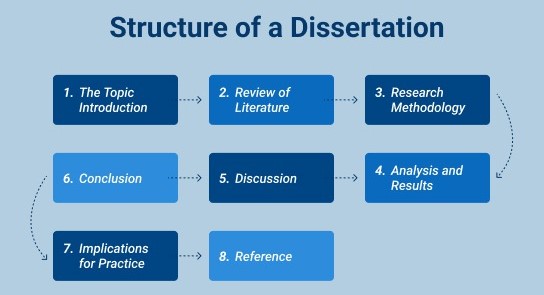
Table of Contents
For aspiring nurses seeking to advance their careers and contribute meaningfully to the field, a nursing dissertation paper is often the culminating step. This rigorous academic undertaking demands meticulous planning, in-depth research, and a strong grasp of writing skills. But crafting a successful nursing dissertation paper is not an insurmountable task. By understanding its essential components, you can navigate this journey with confidence and produce a paper that is both insightful and impactful.
The Essential Components of a Nursing Dissertation Paper
1. Choosing a Compelling Topic:
The foundation of any successful nursing dissertation paper lies in choosing a compelling research topic. This topic should be a subject you are passionate about and possesses a strong research base. It should also be relevant to current nursing practices and address a significant gap in existing knowledge.
How to choose a strong topic:
- Personal Interest: Reflect on your experiences and interests within the nursing field. Are there areas where you see a need for improvement or further exploration?
- Literature Review: Conduct a thorough review of current nursing research publications. This will help you identify key areas of focus, gaps in knowledge, and emerging trends.
- Clinical Relevance: Ensure your chosen topic has direct implications for clinical practice. It should have the potential to improve patient care or inform nursing interventions.
- Feasibility: Consider the resources available to you, including time, funding, and access to data.
- Focus: Avoid topics that are overly broad or complex. Instead, narrow your focus to a specific area within your chosen field.
2. Developing a Strong Research Question:
Once you have a compelling topic, the next step is to craft a clear and focused research question. This question should guide your entire dissertation paper, acting as a roadmap for your investigation.
Characteristics of a strong research question:
- Specific: Avoid vague or general questions. Be precise in defining the scope of your inquiry.
- Measurable: Your question should be framed in a way that allows you to collect and analyze quantifiable data.
- Achievable: Ensure that your research question is feasible given the time and resources available.
- Relevant: The question should directly relate to your chosen topic and contribute to the body of nursing knowledge.
- Time-bound: Define a clear timeframe for your research.
3. Conducting a Thorough Literature Review:
The foundation of any nursing dissertation paper is a comprehensive and critical literature review. This section of your paper will demonstrate your understanding of the existing research and lay the groundwork for your own contribution.
Key aspects of a strong literature review:
- Comprehensive Scope: Include relevant research from various sources, including peer-reviewed journals, books, and reputable online databases.
- Critical Analysis: Go beyond summarizing previous studies. Analyze their methodologies, strengths, weaknesses, and limitations.
- Synthesis and Interpretation: Identify common themes, contrasting viewpoints, and emerging trends in the literature.
- Gap Identification: Clearly articulate the gaps in existing knowledge that your research will address.

4. Choosing an Appropriate Research Methodology:
The choice of research methodology is crucial for ensuring the validity and reliability of your findings. The most appropriate methodology will depend on your specific research question and the nature of your data.
Commonly used methodologies in nursing dissertation papers:
- Quantitative Research: Employs numerical data and statistical analysis to test hypotheses and quantify relationships.
- Qualitative Research: Focuses on understanding human experiences, perspectives, and meanings through interviews, focus groups, and observations.
- Mixed Methods Research: Combines both quantitative and qualitative approaches to gain a more comprehensive understanding of a research problem.
5. Data Collection and Analysis:
Once you have chosen your methodology, you will need to collect and analyze your data. This step requires careful planning, attention to detail, and adherence to ethical guidelines.
Data Collection Techniques:
- Surveys: Used to gather quantitative data from a large sample size.
- Interviews: Allow for in-depth exploration of individual experiences and perspectives.
- Focus Groups: Used to gather qualitative data from a group of individuals.
- Observations: Involve systematic recording of behaviors and events in a natural setting.
- Existing Data: Utilizing data already collected, such as medical records or clinical databases.
Data Analysis Techniques:
- Statistical Analysis: Used to analyze quantitative data to identify trends and relationships.
- Thematic Analysis: Used to identify themes and patterns in qualitative data.
- Content Analysis: Used to analyze written or spoken communication to understand its content.
Writing and Formatting the Dissertation Paper
The final stage of the dissertation process involves writing and formatting your research findings in a clear, concise, and academically rigorous manner.
Key elements of a well-written nursing dissertation paper:
- Clear and Concise Writing: Use precise language and avoid jargon.
- Logical Structure: Organize your paper into clear sections, including an introduction, literature review, methodology, results, discussion, and conclusion.
- APA Style Formatting: Adhere to the American Psychological Association (APA) style guide for formatting, citations, and references.
- Supporting Evidence: Provide strong evidence for all your claims, using credible sources and appropriate data.
Defending Your Dissertation Paper
The final step in the dissertation journey is the oral defense. This is an opportunity to present your research findings to a panel of experts and answer their questions.
Tips for a successful dissertation defense:
- Practice Your Presentation: Rehearse your presentation thoroughly to ensure smooth delivery.
- Be Familiar with Your Research: Know your research inside and out.
- Address Criticisms Constructively: Respond to questions and criticism with professionalism and grace.
Common Pitfalls in Nursing Dissertation and How to Avoid Them
Embarking on a nursing dissertation is a challenging yet rewarding journey. This academic endeavor culminates years of study and offers a unique opportunity to contribute to the field of nursing. However, the road to a successful nursing dissertation paper is often paved with potential pitfalls that can derail even the most dedicated student.
This article aims to equip aspiring nursing researchers with the knowledge to navigate these common pitfalls and ensure their nursing dissertation paper stands out as a testament to their scholarly prowess.
Pitfall 1: Lack of a Clear Research Question: A well-defined research question forms the foundation of any successful nursing dissertation paper. Without a clear and focused question, the entire dissertation can become unfocused, leading to irrelevant data collection and analysis.
How to Avoid: Dedicate ample time to refining your research question. Engage in thorough literature reviews, consider the current gaps in knowledge, and formulate a question that is specific, measurable, achievable, relevant, and time-bound (SMART).
Pitfall 2: Insufficient Literature Review: A comprehensive and critical literature review is essential to establish the context and significance of your nursing dissertation paper. A weak literature review undermines the credibility and impact of your research.
How to Avoid: Go beyond surface-level searches. Explore diverse databases, utilize advanced search strategies, and critically analyze the chosen literature. Connect your findings to your research question and identify gaps in knowledge that your study aims to address.
Pitfall 3: Inappropriate Methodology: Choosing an inappropriate research methodology can significantly impact the validity and reliability of your findings. Selecting a methodology that misaligns with your research question or lacks rigor can render your nursing dissertation paper unpublishable.
How to Avoid: Carefully consider the various research methodologies available, such as quantitative, qualitative, or mixed methods. Consult with your advisor and ensure the chosen methodology aligns with the nature of your research question and data analysis.
Pitfall 4: Weak Data Collection and Analysis: The quality of your data collection and analysis directly influences the quality of your nursing dissertation paper. Poorly designed data collection tools and inappropriate analysis techniques can lead to inaccurate conclusions and a flawed study.
How to Avoid: Develop robust data collection instruments, pilot them with a test group, and ensure they accurately measure the variables of interest. Employ appropriate statistical or qualitative analysis techniques to extract meaningful insights from your collected data.
Pitfall 5: Neglecting Ethical Considerations: Research involving human subjects requires adherence to strict ethical principles. Ignoring ethical considerations can lead to significant repercussions and jeopardize the integrity of your nursing dissertation paper.

How to Avoid: Consult with your institution’s ethics committee, obtain informed consent from participants, maintain confidentiality, and ensure your research adheres to all relevant ethical guidelines.
Pitfall 6: Poor Writing and Formatting: A well-written and formatted nursing dissertation paper presents your research in a clear, concise, and professional manner. Poor writing and formatting can detract from the impact of your research and diminish the reader’s understanding.
How to Avoid: Write clearly and avoid jargon. Organize your dissertation into distinct sections, adhere to the prescribed formatting guidelines, and thoroughly proofread your work for errors.
Pitfall 7: Inadequate Time Management: Completing a nursing dissertation paper requires significant time and effort. Poor time management can lead to procrastination, missed deadlines, and a rushed final product.
How to Avoid: Develop a detailed timeline, set realistic milestones, and prioritize tasks. Break down complex tasks into smaller, manageable steps and allocate dedicated time for research, writing, and revisions.
Pitfall 8: Lack of Support: Navigating the complexities of a nursing dissertation paper is a challenging endeavor. Lack of support can lead to feelings of isolation, discouragement, and ultimately, failure.
How to Avoid: Develop a strong relationship with your advisor, engage in regular communication, and seek support from colleagues and fellow students. Join relevant research groups or societies to connect with other nursing researchers and access mentorship opportunities.
Avoiding these common pitfalls is crucial for achieving a successful nursing dissertation paper. By proactively addressing these challenges, aspiring nursing researchers can pave the way for a fulfilling and impactful research experience. Remember, the journey to a successful nursing dissertation paper is not about perfection, but about continuous learning, growth, and the pursuit of knowledge that ultimately benefits the field of nursing.
Frequently Asked Questions about Nursing Dissertation Papers
Embarking on a nursing dissertation paper is a significant step in your academic journey. It’s a culmination of your knowledge, research skills, and passion for the field. However, it can also feel overwhelming. To help alleviate some of the anxiety, we’ve compiled a guide to answer some of the most frequently asked questions about writing your nursing dissertation.
1. What is a nursing dissertation paper?
A nursing dissertation is a substantial academic work that showcases your in-depth understanding of a specific nursing topic. It involves conducting original research, analyzing data, and presenting your findings in a well-structured and scholarly format. Its purpose is to contribute new knowledge to the nursing field and demonstrate your ability to conduct independent research.
2. What topics are suitable for a nursing dissertation paper?
The best nursing dissertation paper topics are those that are:
- Relevant to the nursing field: Choose a topic that addresses current challenges or gaps in nursing knowledge.
- Feasible to research: Ensure you have access to data and resources needed to conduct your study.
- Engaging for you: Select a topic that genuinely interests you, as you will be spending a considerable amount of time working on it.
3. How do I choose a research methodology for my nursing dissertation paper?
The research methodology you choose depends on the nature of your study and your research question. Common methodologies include:
- Quantitative research: This involves collecting and analyzing numerical data to test hypotheses.
- Qualitative research: This focuses on understanding experiences, perspectives, and meanings through interviews, observations, and textual analysis.
- Mixed methods research: This combines both quantitative and qualitative methods to provide a more comprehensive understanding of a topic.
4. What are the key components of a nursing dissertation paper?
A typical nursing dissertation consists of the following sections:
- Abstract: A brief summary of your study.
- Introduction: Provides context, states your research question, and outlines the significance of your study.
- Literature Review: Examines existing research on your topic to identify gaps in knowledge.
- Methodology: Details the research design, data collection methods, and ethical considerations.
- Findings: Presents and analyzes the results of your research.
- Discussion: Interprets your findings in relation to existing literature and discusses their implications for nursing practice.
- Conclusion: Summarizes your key findings and their significance.
- References: Lists all sources cited in your paper.

5. How long should a nursing dissertation paper be?
The length of a nursing dissertation can vary depending on your university’s guidelines. Typically, it ranges from 8,000 to 15,000 words.
6. How can I ensure my nursing dissertation paper meets academic standards?
- Use a clear and concise writing style: Avoid jargon and unnecessary complexity.
- Adhere to APA style: This includes formatting guidelines for citations, references, and the overall structure of your paper.
- Proofread thoroughly: Pay attention to grammar, spelling, and punctuation errors.
- Get feedback from your supervisor: Seek their input and guidance throughout the writing process.
7. What are some common challenges faced when writing a nursing dissertation paper?
- Time management: It takes significant time to conduct research, analyze data, and write your paper.
- Motivation: Maintaining focus and enthusiasm over a long period can be challenging.
- Research limitations: Access to data and resources may be limited.
8. How can I overcome these challenges?
- Develop a realistic timeline: Break down the writing process into smaller, manageable tasks.
- Find a supportive network: Discuss your research with fellow students or colleagues.
- Seek help when needed: Don’t hesitate to reach out to your supervisor or a research consultant for guidance.
9. What is the significance of a nursing dissertation paper?
A well-conducted nursing dissertation can contribute to the body of knowledge in the field, inform clinical practice, and contribute to improving patient care.
10. What are the next steps after completing my nursing dissertation paper?
- Submit your dissertation: 2Adhere to your university’s submission deadlines and guidelines.
- Defend your dissertation: Prepare for a viva voce examination, where you will discuss your research and answer questions from your examiners.
- Consider publishing your findings: Sharing your research can have a broader impact on the nursing field.
Final Thoughts
Writing a nursing dissertation paper is a challenging but rewarding endeavor. By following these essential components, you can craft a high-quality paper that showcases your expertise, contributes to the field of nursing, and sets you on a path toward academic and professional success.
Remember:
- Seek Guidance: Don’t hesitate to seek guidance from your dissertation advisor, faculty members, and fellow students.
- Prioritize Your Time: Develop a realistic timeline and stick to it to ensure you meet deadlines.
- Stay Organized: Maintain a system for tracking your progress, collecting data, and referencing sources.
- Believe in Yourself: Have confidence in your abilities and the value of your research.
Your nursing dissertation paper is a testament to your dedication and potential. By embracing the essential components and putting in the hard work, you can create a piece of scholarship that will advance the field of nursing and contribute to the well-being of patients.
Key Points to Remember:
- The nursing dissertation paper is a culminating academic undertaking for aspiring nurses.
- Choosing a compelling research topic, developing a strong research question, conducting a thorough literature review, and selecting an appropriate research methodology are essential steps in the process.
- Data collection and analysis should be conducted meticulously and ethically.
- Writing and formatting the dissertation paper require clarity, conciseness, and adherence to academic standards.
- The oral defense provides an opportunity to present and defend your research findings to experts.
By understanding and applying these essential components, you can produce a successful nursing dissertation paper that serves as a testament to your academic prowess and a valuable contribution to the field of nursing.
Get Professional Nursing Dissertation Writing Service
At PhD Nurse Writer, we can help you to write all your nursing dissertation papers to the best standards for academic excellence. Our service covers topic suggestion, dissertation writing, proofreading, editing, formatting and plagiarism removal. Get in touch with us today for authentic essays, research papers and case studies.





